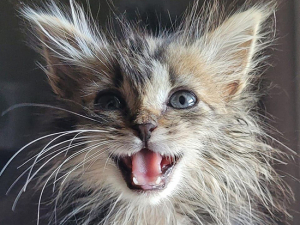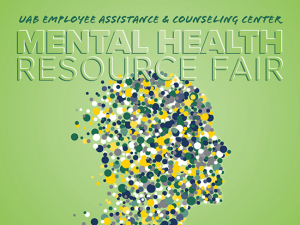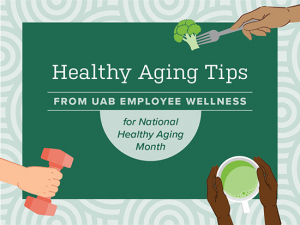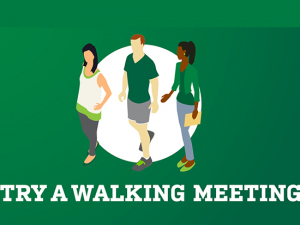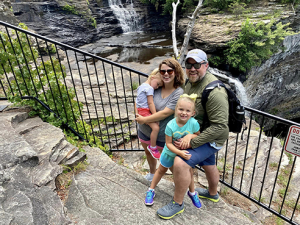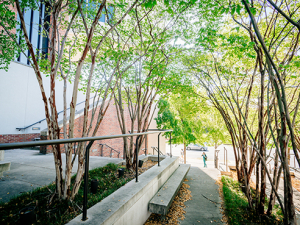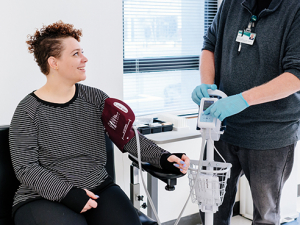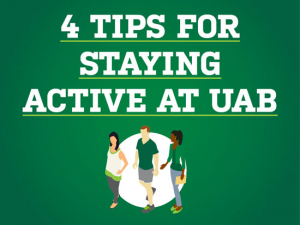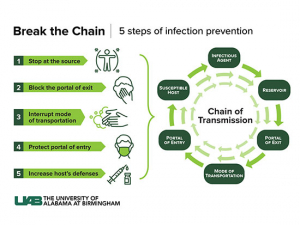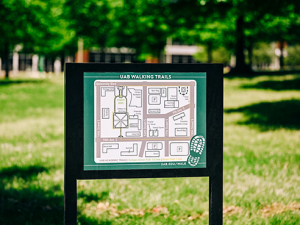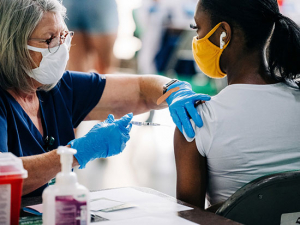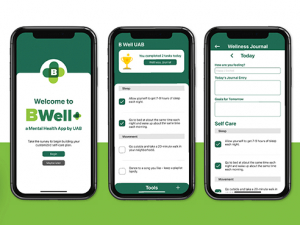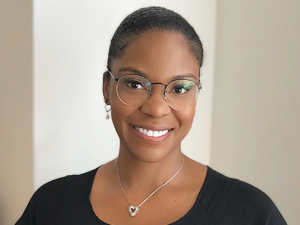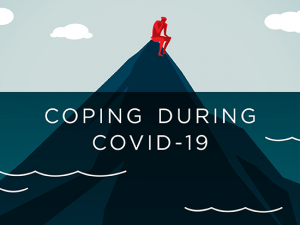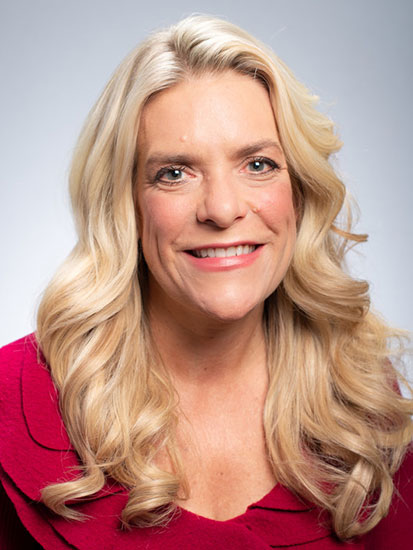 “Life is going to continue to send you curveballs you can’t control,” says Holly Wyatt, M.D., professor in the Department of Nutrition Sciences. "So why don’t you get good at hitting curveballs instead?” Wyatt shares skills on how to do just that in a popular course, Well-Being and You.On the way in to work, you hear a depressing story on the news: All this new AI technology is supposed to eventually replace half of the jobs in America. What about yours? Or maybe you just got back your score on a test, one you had studied for long and hard, and you still barely passed. Is it possible you are just not cut out for this degree? Or perhaps it is something health-related instead: Your mother calls to say she has been diagnosed with a chronic disease. How will she pay for the treatments?
“Life is going to continue to send you curveballs you can’t control,” says Holly Wyatt, M.D., professor in the Department of Nutrition Sciences. "So why don’t you get good at hitting curveballs instead?” Wyatt shares skills on how to do just that in a popular course, Well-Being and You.On the way in to work, you hear a depressing story on the news: All this new AI technology is supposed to eventually replace half of the jobs in America. What about yours? Or maybe you just got back your score on a test, one you had studied for long and hard, and you still barely passed. Is it possible you are just not cut out for this degree? Or perhaps it is something health-related instead: Your mother calls to say she has been diagnosed with a chronic disease. How will she pay for the treatments?
Do these troubles make you want to look for comfort in a pint of ice cream? Throw up your hands and sink into the couch? Pull the covers over your head?
“Life is going to continue to send you curveballs you can’t control,” said Holly Wyatt, M.D., professor in the Department of Nutrition Sciences. And those curveballs are particularly troublesome when you are trying something new or making a change — trying to lose 10 pounds, for example.
“Most of us think, I’ll wait until life calms down, until this class is over, until I’m retired to make a change,” Wyatt said. “We don’t want to deal with the curveballs. But it will never be calm; that’s what life is. So why don’t you get good at hitting curveballs instead?” Another name for that is emotional resiliency: an ability to adapt to stressful situations.
Ted Williams, the baseball great who knew a thing or two about hitting curveballs, said that 50 percent of effective hitting is “proper thinking.” Wyatt would agree, based on her experience as a clinician helping patients lose weight and as a researcher who studies the traits of people who are successful at controlling their weight long term. “People who are successful at losing weight need to have an evidence-based diet, but the what alone is not enough,” Wyatt said. “You have to couple it with the why.” In other words, mind-state and motivation are critical.
“A better version of myself”
This is the message Wyatt shares with students in Well-Being and You (NTR 121), the introductory course in her department’s biobehavioral nutrition and wellness major. Well-Being and You (taught by Wyatt and several other nutrition sciences faculty) has drawn raves from students. “It has pushed me to think beyond myself and become a better version of myself,” one student said. “The things I was taught in that class are lifelong skills I will never stop using,” said another. “I wish I had had this class when I was an undergrad,” Wyatt said.
The student response has been so positive that the Reporter asked Wyatt to share some highlights anyone can use to take on life’s curveballs. She boiled it down to three key points and four strategies to try out.
1. Awareness leads to control
One inspiration for the lessons she teaches in Well-Being and You, Wyatt says, is the rapid increase in anxiety that faculty have seen among students in recent years — a trend that accelerated during the pandemic.
“That is what the anxiety is about: I’m not controlling what’s coming,” Wyatt said. “We talk about mindfulness, being able to be aware of what’s going on, to feel your feelings and name them. If you are aware in the moment, then you can make strategic choices. Being able to control the moment is where the power sits. We spend so much time in the past and so much in the future, worrying about AI, etc. Your life sits in the present.”
2. Adopting the voyager mindset
“You get to control what direction you face,” Wyatt said. “We typically face toward where all the problems are coming from:
- fear
- limitations
- what I have to do
- what I should do
The infinity lifestyle
Wyatt’s first book, written with fellow nutrition sciences professor James Hill, Ph.D., is “State of Slim,” which explains why Colorado is the country’s healthiest state. “The head fake of the book is that it is really about a state of being more than the physical state,” Wyatt said. “I’m not saying that your environment isn’t important, but you can create your own environment.”
Wyatt is now writing a new book, “which is about what I’m calling the ‘infinity lifestyle,’ which will demonstrate how these principles can be applied to anything,” Wyatt said. “It’s not just weight loss.”
“We encourage students to turn that around, to adopt what we call a ‘voyager mindset’:
- What could I do?
- What possibilities exist?
- What are the opportunities out there?
- What are the solutions instead of what are the problems?”
During the Well-Being and You class, students take a series of validated questionnaires to learn more about their mind-state, body-state, diet and more. “We see that they are anxious when they are getting their scores back, even though this has nothing to do with a grade,” Wyatt said. “They are thinking, ‘Did I do well, or did I do poorly?’ But with the voyager mindset, you can turn that around. If you got a score you don’t like, you can say, ‘I have so much room to grow! How much fun would it be to improve that?’ To see them realize that and think about it differently empowers them and changes everything.”
3. Bend, don’t break — with these strategies
Wyatt is careful to emphasize to students that “emotional resiliency is not a trait; it’s not something that you are born with,” she said. “These are strategies and skills that anyone can learn. We tell students, ‘You can work on it.’ They like that. ‘I can work on this and improve this.’”
Emotional resiliency “is learning how to bend and not break,” Wyatt said. “There are a couple of ways to think about stress. We can decrease stress, and cognitive orientation helps with that. But ultimately, we can’t get rid of it. Life is a series of curveballs. Do you have skills and strategies to deal with the curveballs and come out the other side stronger?”
Over the semester, students learn a dozen or so of these strategies and skills. “Some will come easily; others are more difficult,” Wyatt said. “We encourage students to take that list and say, ‘I’m good at this one, but I’ll work on these other ones.’”
Here are four of the strategies and skills that her students practice:
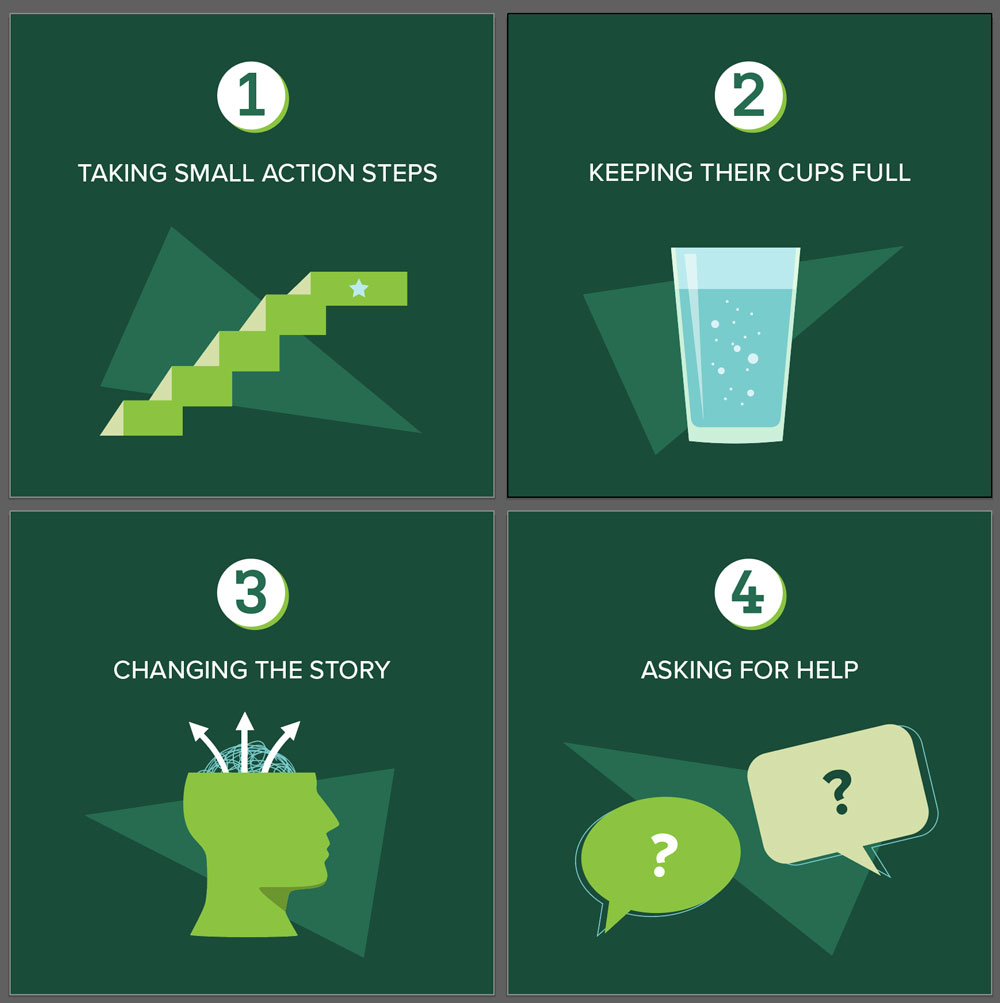 Illustration by Shannon Robinson | University Relations
Illustration by Shannon Robinson | University Relations1. Taking small action steps
“Action conquers fear,” Wyatt said. “You think you have to do 20 steps at once to reach a goal or solve a problem, so you are paralyzed. But you don’t have to figure the whole thing out before you start moving. Taking steps, even small ones, gets you into a problem-solving mode.”
2. Keeping their cups full
“People with high emotional resiliency don’t let their own personal health or well-being get on empty,” Wyatt said. “They keep their personal cup half full at least. If you haven’t been sleeping well or eating well, you are running on empty — so when life throws you a curveball, you can’t deal with it. If you have something in the tank, you are more likely to respond in a productive way.”
Wyatt asks students to personalize this. “What fills your cup and my cup are different,” she said. “Extroverts fill their cup around other people, for example, and introverts fill their cup by being alone. You need to ask yourself, ‘What is self-care for me?’”
3. Changing the story
“When you are faced with a curveball, you will have negative emotions, and you have to be aware of the story you are telling yourself,” Wyatt said. “Better yet, you can go upstream of that and change the story before you get to that emotion.”
She gives students this example: “Say you are going down University Boulevard and you see your best friend across the street. You wave and they don’t wave back. In fact, they look right at you and then look away. Immediately, you may think, ‘What did I do to offend them?’ or you might think, ‘How dare they?!’ Suddenly, all this anxiety or anger comes up. But in reality, your friend just had their pupils dilated during an eye exam and they can’t see a thing. The point is, if you change the story, you can change the whole downstream piece.”
4. Asking for help
“People with high emotional resiliency are good at this,” Wyatt said. “They know when they need help, and they see that as a strength, not something that means they are weak.”
Hitting the curves in real time
As the semester unfolds for students in the Well-Being and You course, “we have assignments that we give them; but life gives them stressors as well,” Wyatt said. “They get sick, they’re struggling with a class or a teacher, or it is something in their family. They can apply these skills in real time as the curveballs come. That to me is what this class is all about.”

